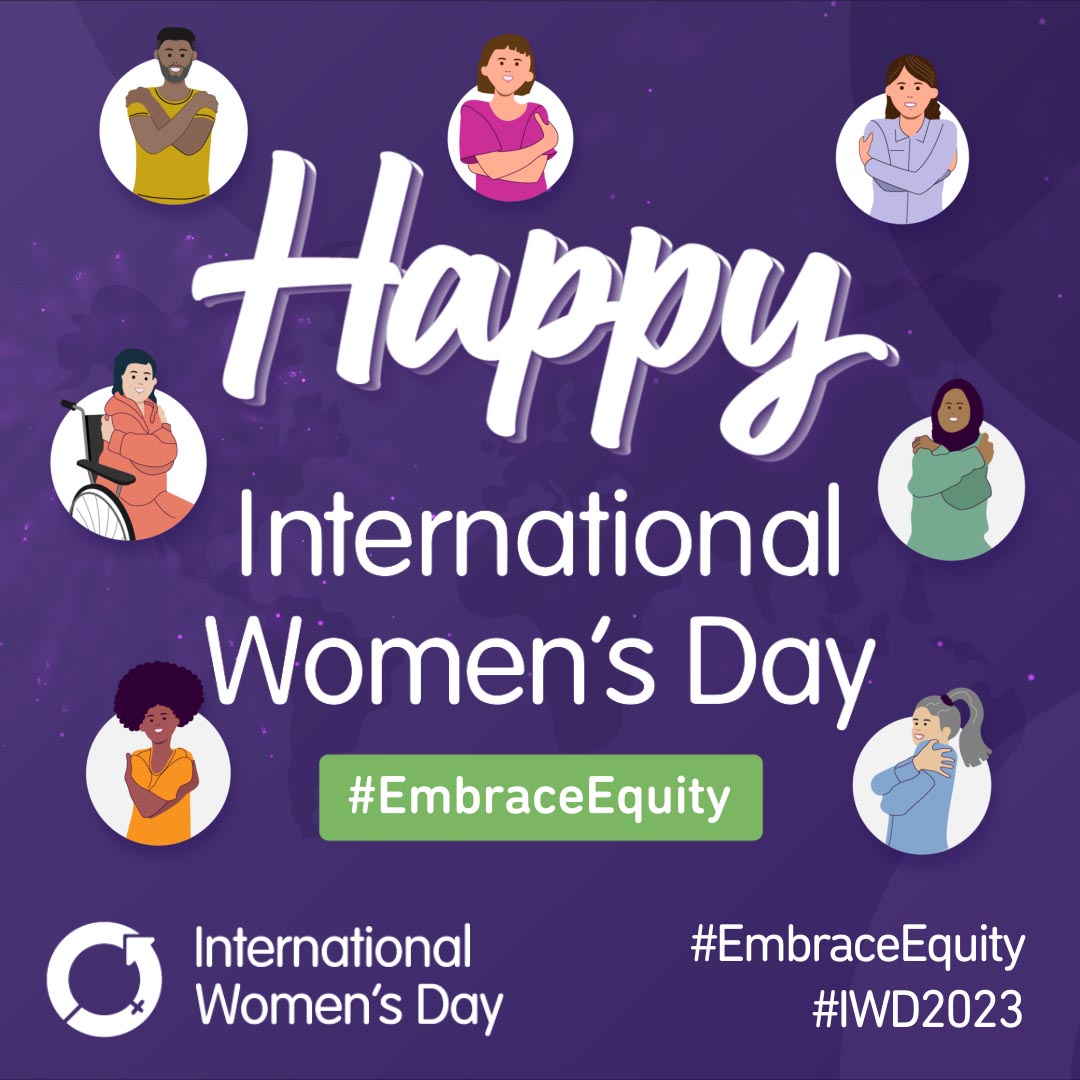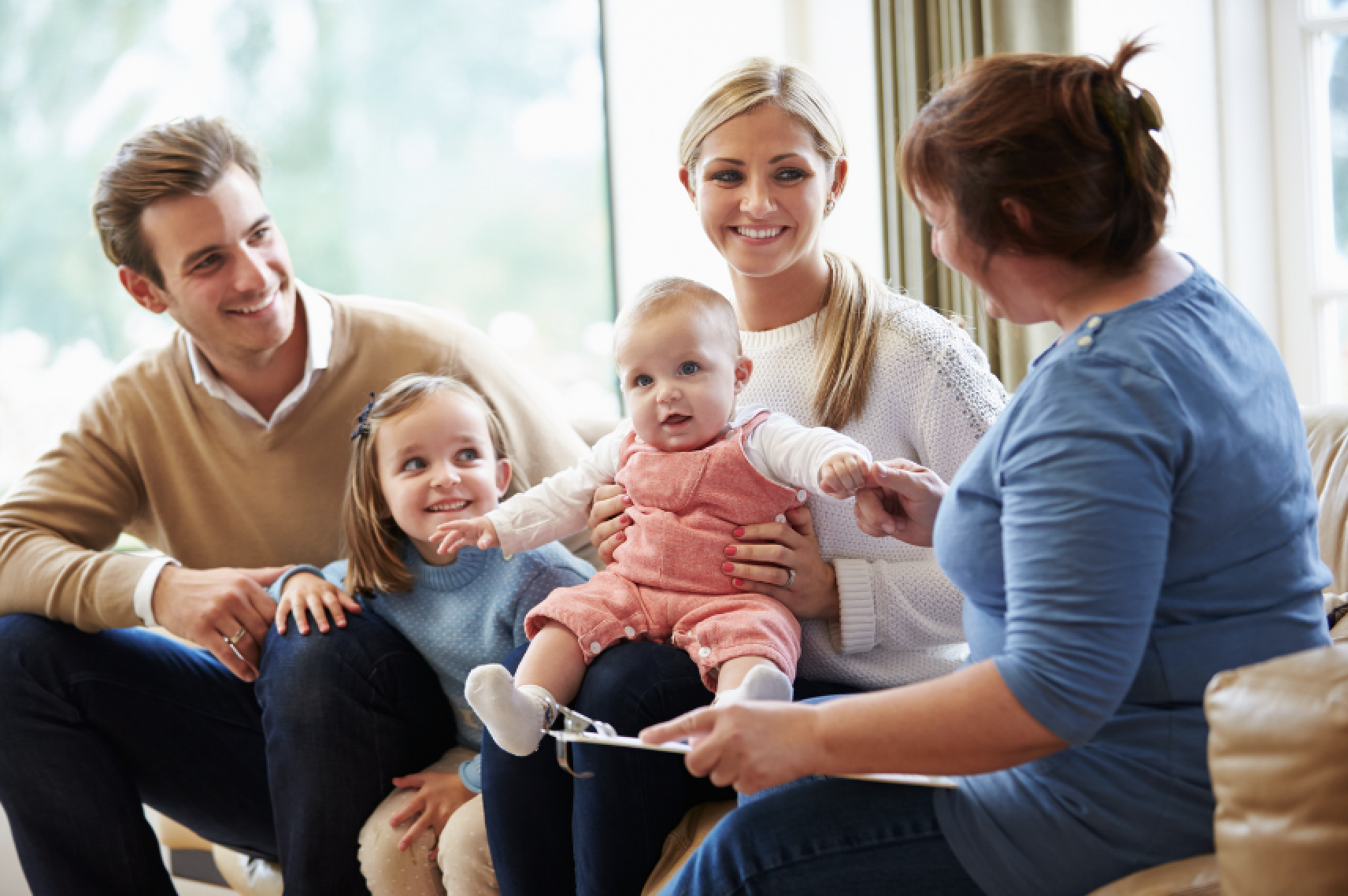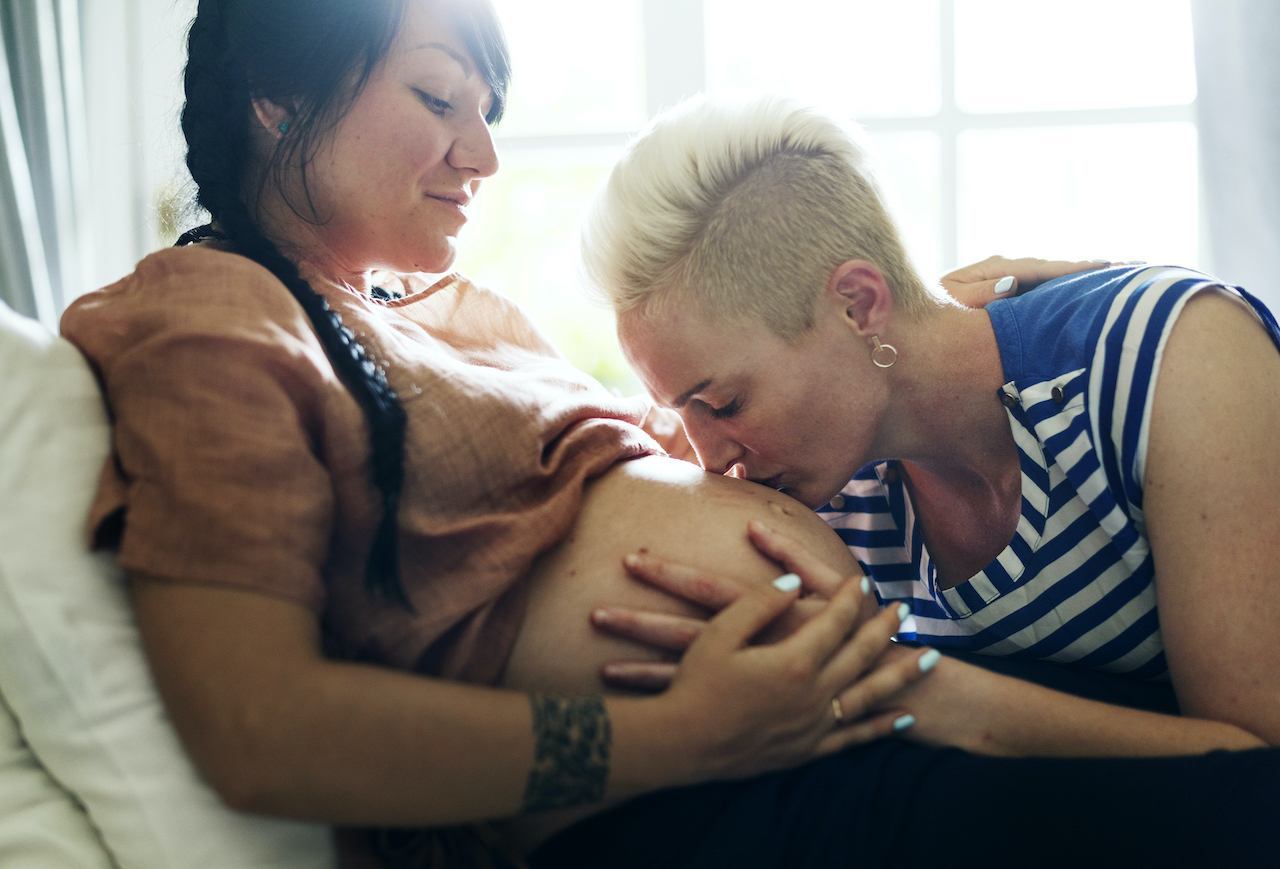
About DadPad, Equity and Equality, Key Content
About DadPad: Equity in parenting
Posted on 8th March 2023
Today is International Women’s Day 2023. Not the most obvious choice for a blog post from a dad-focused organisation, you might think? However, with the theme this year of ‘Embrace Equity’, IWD gives us a real opportunity to focus in on the ways in which a lack of equality and equity in perinatal care and throughout the perinatal period has had – and is continuing to have – a real impact on all members of a new family. In particular, we want to look at the ways in which the work that our team here at Inspire Cornwall is doing aligns with the aim of helping achieve that equity for all – and women in particular.

What is equity?
The International Women’s Day website has a fantastic range of information and resources to help us better understand what equity is and how we can work to achieve it.
Firstly, in terms of the difference between equality and equity, they start with this helpful explanation:
Equality means each individual or group of people is given the same resources or opportunities. Equity recognises that each person has different circumstances, and allocates the exact resources and opportunities needed to reach an equal outcome.
They expand on and clarify the distinction further on, in this case in the context of resolving social issues:
People who push for equality-based solutions to social issues may believe in impartiality, and that there should be no difference in services and policies. However, equity-based solutions take into account the diverse lived-experiences of individuals and communities, adapting services and policies according to these differences. Equity is a long-term and sustainable solution, and is a process for addressing imbalanced social systems.

The imbalance in the perinatal period – and why it matters
We’ve already looked at the issues which come as a result of the perinatal period (which, within the Health Service, is viewed as running from the moment of conception, through until the baby is a year old) being historically and traditionally female-centred – both in terms of those involved as ‘service users’ and those providing the care. The effect of all this is that, today, research – as referenced in the House of Commons Health and Social Care Committee’s 2019 First 1000 days of life report – has found that fathers feel “excluded in the antenatal period”.
This is in spite of the fact that generational change has meant that fathers in the 21st Century are more likely than perhaps any generation before to want (and expect) to be ‘hands on’ – and maybe even an equal partner – as a dad.
In our DadPad as a feminist concept blog from 2020, we quoted from The Fatherhood Institute’s (2018) research: Who’s the bloke in the room? This report found that – even though 99% of dads-to-be attend an antenatal ultrasound scan, 94% attend at least one routine antenatal appointment, and 98% attend at some point during labour and birth (with 91% there from start to finish) – maternity services failed to ask:
- 82% of dads-to-be/new dads surveyed about their mental health;
- 78% about their physical health;
- 65% about their roles; and
- 48% about smoking…
… and 56% weren’t called by their name.
The need for this to change – for services to welcome and encourage the active and positive involvement of dads – is also supported by the Parent-Infant Foundation’s 2019 Development and Implementation Toolkit which includes the comment that:
Despite good evidence that the engagement of fathers is highly beneficial for children, mothers and the whole family even where parents are separated, fathers are more likely to be overlooked or inadvertently excluded by services supporting children.
These feelings of exclusion can have all sorts of negative outcomes. We look at all these in more depth in our feminism blog post, but – in short – they include:
- A negative impact on dads’ mental health, if he feels duty-bound to perform a traditional ‘male’ role and/or if the impact that new parenthood is having on his own mental health isn’t being fully monitored by the health professionals in the same way that his partner’s will be;
- Increased pressure on, and dissatisfaction for, both new parents, if they feel themselves being unavoidably edged into traditional roles – with dad expected to be the ‘man of the house’ and ‘breadwinner’, and mum needing to take the lead on all things ‘childcare’-related; and
- A danger that, as a result of all or any of the above, the baby/child will also miss out on the many lifelong benefits of having formed a positive and secure bond with their involved and engaged dad.
Thus, the failure to include, acknowledge and engage with dads during the perinatal period has the potential to have serious knock-on consequences for dad, mum and their children.

Identifying the barriers
So, why aren’t dads being treated with equality and equity during this important time?
Clearly a lot of it does stem from those historic and ingrained perceptions of the ‘expected’ gender-focused roles to be played by each parent, which are often upheld and sustained (whether intentionally or not) by extended family, friends and even the healthcare professionals supporting the family.
Added to this, though, there are other barriers which can have a more subtle, but still off-putting, effect on dad-involvement.
For example, most of the resources, information and facilities in place to assist new parents are mum-centric. Even within those leaflets, resources or websites purportedly written for ‘parents’ rather than ‘mums’, it usually doesn’t take long to find the obvious clues that the writers didn’t really have dads in mind when they wrote their materials, with phrases like ‘when you give birth’ or ‘when you are breastfeeding’ often creeping in. And, even where dad is explicitly acknowledged, his role is often viewed as being secondary: be alert to wording which suggests ways in which dad can ‘help mum with baby’, with the clear implication that mum is the one taking the lead in this role, and dad is a mere underling…
This lack of appropriate, dad-focused resources is recognised in academic research, including Baldwin et al’s (2018) observation that: “The main barriers to new fathers accessing or receiving adequate support were related to the lack of resources aimed specifically at men“, and the Fatherhood Institute’s (2018) recommendation that:
Pre-natal health education and information should be directed at men as well as women, and maternity services should be required to provide information directly to the father/woman’s partner, rather than relying on the ‘woman as educator’.

Achieving equity in parenting
To start to breakdown and remove these barriers, then, which – implicitly or explicitly – discourage dad from getting and expecting to be actively involved as an equal co-parent right from the moment that pregnancy is confirmed, the research evidence needs to be studied and listened to. For example, academic research has clearly demonstrated that – in order for a male-dad/dad-to-be to successfully engage with resources/support/professionals during the perinatal period – he needs to feel that those resources are specifically aimed at him (‘dad’) and that he is not taking away from and/or getting involved in ‘territory’ that is intended for his partner or baby (‘mum’ or ‘parent’-focused resources). In fact, The Fatherhood Institute actually advises:
Unless you explicitly address fathers, they are overlooked and implicitly excluded: most people (mothers and fathers, practitioners, policymakers, researchers, etc) see the word ‘parents’ and read it (subconsciously or unconsciously) as meaning ‘mothers’.
On this basis, then, it is insufficient to merely ‘neutralise’ all existing resources, organisational set-ups and support systems in the hope that this will make them suitable for all (non-gendered) ‘parents’ , as this will not help to achieve true equity for the parties involved.
Let’s look at this quote from internationalwomensday.com by way of example:
Equality focuses on providing all genders with equal opportunities, such as a woman’s right to vote. Yet, women often require more than a level playing field. They need to belong in a global culture that actively promotes and supports them in all aspects of their life, from education to the workplace to health… Policies that benefit white women, for example, may not benefit women of colour due to historical or current inequalities. A shift from gender equality to the process of gender equity is required for meaningful progress.
Similarly, due to historic and established assumptions, stereotyping and service-focus, dads and other traditionally excluded parents (such as LGBTQI+ non-birthing co-parents) will require more than simply being offered a ‘level playing field’ to achieve greater equality and, in turn, gender equity during the perinatal period and beyond. Each group needs, among other things: resources that have been purposely-written for their gender-specific (and other) needs; tailor-made questions, prompts and tools for the frontline health professionals to use as a means of checking in on their wellbeing – physical and mental – at all stages of expectant and early parenthood; and employment laws that recognise their equal responsibility, expectations and role as a parent.
Whilst we can’t change all of that – although we wish we could! – we can produce resources which aim to meet the specific needs of the intended readers: whether they be dads with babies in the neonatal unit, LGBTQI+ non-birthing parents, dads who might struggle to engage with in-depth and detailed text, or just… dads!
We can also offer training and support to the areas around the country who’ve invested in DadPad, and their frontline-facing professional teams, to help raise awareness of:
- the importance of engaging positively with dads at every step of the way;
- the barriers which might prevent them from becoming involved;
- the benefits that this brings to all the family – and mum in particular; and
- the various ways in which the DadPad and Co-ParentPad resources can be utilised to help achieve these goals.
And we can keep talking with those colleagues, across the UK and further afield, all working with similar ambitions to us, to help improve our own knowledge and – by writing about their work, their research and their aims in our blog posts and on our social media, as well as sharing our growing ‘intelligence’ with the health service professionals that we are in daily contact with – we can support the bigger movement towards gender equity in parenting, and all the long-term benefits that this will bring to individuals, families and society as a whole.
#EmbraceEquity

References and further reading:
- Baldwin, Sharin; Malone, Mary; Sandall, Jane; and Bick, Debra (2018). Mental health and wellbeing during the transition to fatherhood: a systematic review of first time fathers’ experiences [online]. JBI Database of Systematic Reviews and Implementation Reports.
- Burgess, Adrienne and Goldman, Rebecca (2018). Who’s the bloke in the room? Fathers during pregnancy and birth in the UK (Executive Summary) [online]. Fatherhood Institute.
- House of Commons Health and Social Care Committee (2019). First 1000 days of life report [online]
- com (2023). Equality versus Equity: What’s the difference as we #EmbraceEquity for IWD 2023 and beyond? [online]
- com (2023). International Women’s Day 2023 campaign theme: #EmbraceEquity. [online]
- Parent-Infant Foundation (2019). Development and Implementation Toolkit. [online]

